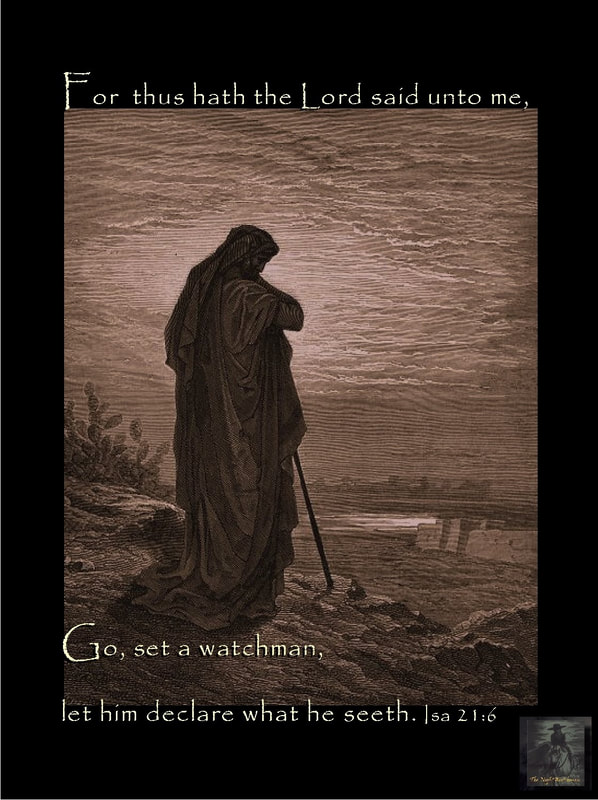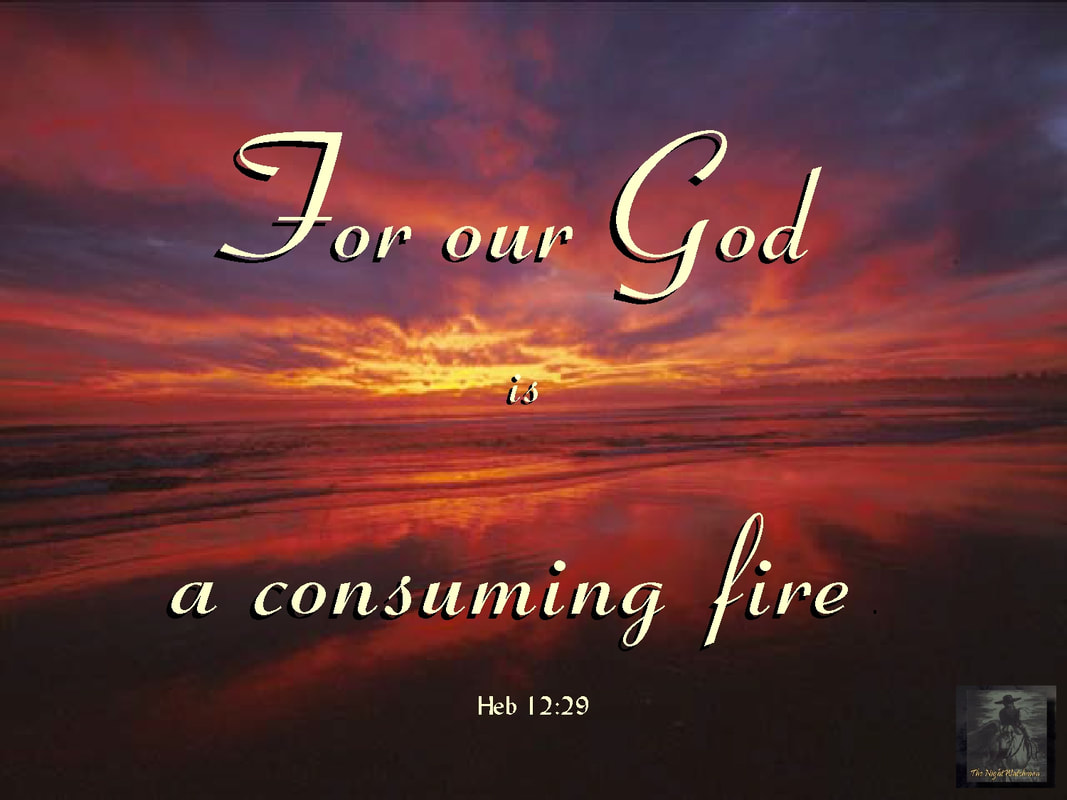|
WALKING IN GOD'S WAYS AND PATHS "Shew me Thy ways, O Lord; Teach me Thy paths." — Psa_25:4. "He will teach us of His ways, and we will walk in His paths." — Mic_4:2 THERE IS a clear difference between a Way and a Path. The one is filled with the throb and stir of the world's life; the other is comparatively lonely and unfrequented. The roll of vehicles and noisy traffic fills the one, whilst the other is, for the most part, trodden by the individual, being too narrow and quiet for the crowd. It is a great comfort that God has paths as well as ways. God's Ways are the great principles on which He acts, the mighty thoroughfares of Creation, Providence, Revelation, Human History, and final Judgment. On these His goings-forth have ever been of old, even from everlasting. To know them is the passionate desire of the purest and loftiest natures. Moses prayed: "Shew me now Thy ways, that I may know Thee," and God graciously granted his request, for to Moses He made known His Ways, but to Israel only His Acts. There is need for us all to know God's Ways, especially in this momentous era; because only so can we enter into His rest. In the Old and New Testaments the same warning is repeated: "they shall not enter into My rest, because they have not known My ways" (Psa_95:11; Heb_3:10). We can look out calmly on this troubled world when once we have learnt to know the divine programme of gathering up all things in Christ, who is the Head; when we walk with Him who is the Way to God (Joh_14:6). The Paths of the Lord may be taken to describe His personal dealings with the individual, who through sickness, or the care of others, or by lonely duty, is isolated from the ordinary worship of the Church, and shut away from fellowship and Christian Ministry. All such may expect and reckon upon the saving help which will come through God's private communications. God is faithful to the soul that utterly trusts Him. He always comes on time, not a moment before, nor a moment too late. Remember that all His Paths are Mercy and Truth. Dare to believe that He is coming along a secret pathway to bring the assurance of His mercy and grace to help in this time of need. Stumps by Peter Fraser As I walk through the forest and breathe in the scent, I notice the peace and feel suddenly content,
For surrounded by nature God's work of Creation, I'm lifted above my earthly station, All around me stand giants of magnificent form, facing all that comes, weathering the storm, And this makes me wonder "What stands like a Tree, what else on the Earth is likened to these"? They start as a seed which is blown here and there, buffeted by wind but not knowing despair, It lands on a piece of fertile ground, proceeding to grow where nutrients abound, Putting down roots, slowly at first, absorbing minerals and quenching its thirst, Becoming the image of the parent Tree, as the years pass along another giant to be. But not without trouble the Sapling tree grows, it deals with the Locust and other such woes, It rolls with the punches that the natural has sent, and slowly grows stronger with every event, As time passes its branches grow dense, its roots go down deep which builds its defense, It's growth never stops though mature and grounded, it continues to stand though often pounded. In its foliage and branches many lives take refuge, burrows and nests without fear of deluge, And many together create habitats, all experiencing their joys, hard times and combat, And then one day disease takes a hold, some branches are withered though still standing bold, It sheds off the dead parts and gets on with life, not willing to fall for after some strife. Leaves come and go with the seasons and years, the Tree knows its share of troubles and tears, Some branches are split or in the storm break away, others stay firm though feeling the sway, Vital sap leaks from injuries gained, but the wounds heal quickly and the body is not drained, Lightning may strike or fire may burn, yet the Tree comes back stronger with still much to learn. But then the day comes when the Lumberjack appears, chips away with his axes, saws and shears, He takes the tree down bit by bit, the branches cut off and the truck is split, Until only a Stump remains on the ground, the mighty has fallen and chaos abounds, For all who look on destruction is complete, there is no more victory only defeat. But under the Stump the roots remain deep, they gather resources though appear to be asleep, The roots do not falter their focus remains, the stump draws on their strength and slowly regains, And surely enough when the right time arrives, evidence appears that the Stump has survived, For there in full view is a brand new shoot, green and full of life which will one day bear fruit. And so when you stand in a forest of trees, take a good look around you and see what God sees, A group standing strong though in constant trouble, in a dangerous world not locked in a bubble, Damage is taken as part of your life, do not expect freedom from wounding and strife, For though you may fall if the roots are strong, you will always grow back and be where you belong. |
Welcome
In this page there will be devotions/poems music and inspirational material 
The Lord Will Pour Out His Spirit
And it shall come to pass afterward, that I will pour out my spirit upon all flesh; and your sons and your daughters shall prophesy, your old men shall dream dreams, your young men shall see visions:
And also upon the servants and upon the handmaids in those days will I pour out my spirit. And I will shew wonders in the heavens and in the earth, blood, and fire, and pillars of smoke. The sun shall be turned into darkness, and the moon into blood, before the great and the terrible day of the LORD come. And it shall come to pass, that whosoever shall call on the name of the LORD shall be delivered: for in mount Zion and in Jerusalem shall be deliverance, as the LORD hath said, and in the remnant whom the LORD shall call. Joel 2:28-32 But this is that which was spoken by the
prophet Joel; And it shall come to pass in the last days, saith God, I will pour out of my Spirit upon all flesh: and your sons and your daughters shall prophesy, and your young men shall see visions, and your old men shall dream dreams: And on my servants and on my handmaidens I will pour out in those days of my Spirit; and they shall prophesy: Act 2:16-18 Resources
Madame Guyon - A Short and Easy Method of Prayer / Christian Audio Book (1 / 2) https://youtu.be/eihZWpAk7y4?si=PQ-_J3Y6i8u-N2Ac Union With God By Jeanne Guyon Chapter 1 Of 7 https://youtu.be/d5AfKS2dFLg?si=VtWAeEurkAddTDpL The Practice of the Presence of God - audiobook Brother LAWRENCE (1614 - 1691)- https://youtu.be/rRAs_BK1NR8?si=hGAL4C829aH7 DKMn Gander Story Poems
https://www.gander poems.org/ Archives
July 2024
|
Proudly powered by Weebly







